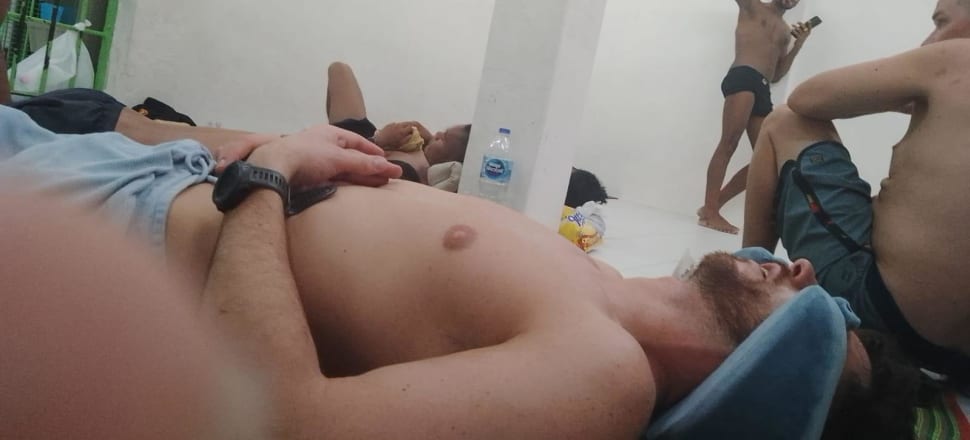
In temporary lock-up for over a month and counting, New Zealand man Ari Salinger wants to know what the embassy is doing to get him home
A Kiwi man locked up in Thailand after being convicted of drug possession for two ecstasy tablets is wondering why he’s being left to rot a month on from being transferred to a temporary detention centre.
Ari Salinger, the son of renowned climate scientist Dr Jim Salinger, says he has watched as prisoners from other countries have flights arranged and leave while he sits and waits in the 70-person cells of Bangkok’s Immigration Detention Centre 2.
He was first arrested last September in Phuket after police found two ecstasy tablets on him, and after a stint out on bail was put in a cell at Patong Provincial Police Station early last month.
After about five days he was transferred to the detention centre in Bangkok and told by his Thai lawyer that deportation should take three to seven days.
Five weeks later, there he remains.
Salinger said despite his father having sent money to pay for his flights home, the New Zealand Embassy in Thailand has yet to act.
He arrived in Bangkok at the beginning of last month with a bus full of around 20 other prisoners – almost all of whom have since been deported.
An embassy worker told Salinger that flight options were limited and finding an airline willing to carry a deportee could take time.
But since then, Salinger said he’d had a number of unanswered communications with the embassy requesting medication and information on his thought-to-be impending release.
A nurse visited him last week but did not bring either of the prescription medicines he asked for, leaving him in discomfort and pain.
The nurse told him a flight had been booked for this Thursday, but he's had no confirmation from the embassy or the detention centre.
When his father asked the embassy how long it would take to arrange his deportation, it said the timeline was out of its hands.
“You’re right that NZ embassy staff help to facilitate the deportation process. However, we don’t have control over the time this takes – there are several requirements and processes that the Thai immigration authorities need to complete and approve through their own systems before detainees can return home,” an embassy representative said.
With his partner due to give birth next month, Salinger wants some quick answers on when he can expect to get on a plane home.
“If you have done anything, I haven't been informed,” Salinger wrote to the embassy. “Like I am some lab rat who you happily leave in a cage, with other lab rats, crawling over each other, some who get medicines and some who don’t.”
It means he’s still waiting on the money his father sent.
Salinger said his partner had dropped off the money at the New Zealand Embassy for plane tickets and to buy him food he could eat with his irritable bowel syndrome – fare that has been hard to get a hold of in lock-up.
His only communication with the outside world is via a phone he has to pay to use.
“Unlike in prison there are no lockers and no prisoner accounts as nobody is supposed to be here long enough to have to worry about stealing and needing to pay the daily fee to be able to use their phone for more than a few days,” he said.
Salinger said there had also been theft within the cells, with people going through his bag while he slept. Concern about theft was why he had asked the money to be brought to him via the embassy, but the delay has him wondering if that was worth it.
The Ministry of Foreign Affairs and Trade has previously said it was providing assistance to a New Zealand citizen but could not comment for reasons of privacy.







